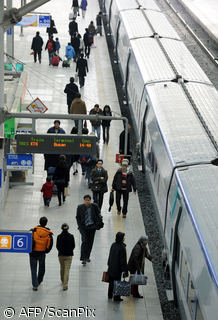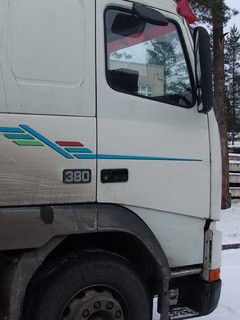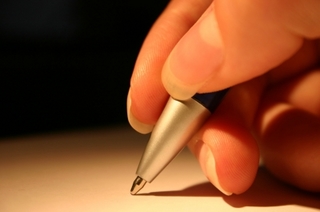A desert country ruled by a virtual dictatorship, Turkmenistan has drawn international interest for one reason: its enormous oil and natural gas deposits.
Published:
21 September 2001 y., Friday
Turkmenistan sits in central Asia, bordering the oil-rich Caspian sea to the west, Kazakhstan and Uzbekistan to the north, and Iran and Afghanistan to the south and west.
With only 3 percent of its land - a territory slightly larger than California - suitable for farming, the predominantly Muslim nation's economy is centered around oil and natural gas.
Since achieving independence with the collapse of the Soviet Union in 1991, the country has remained stable under the autocratic rule of President Saparmurat Niyazov, but has seen its economy contract sharply.
Much of the nation's history involves exploitation by despots; so much so that the 66 years it spent as part of the Soviet Union were a period of relative prosperity.
Even if the nation meets economic growth targets in 2001, however, GDP will still be only 59 percent of pre-independence levels.
Turkmenistan has been reluctant to line up with regional alliances. Its leaders have been feuding for years with neighboring countries over control of oil deposits below the Caspian Sea.
Recently, international aid groups have warned of a growing AIDS problem among Turkmenistan's 4.5 million inhabitants, as well as in the surrounding countries of Central Asia.
Šaltinis:
abcnews
Copying, publishing, announcing any information from the News.lt portal without written permission of News.lt editorial office is prohibited.
The most popular articles
 The mission held constructive discussions with Prime Minister Emmanuel Nadingar, Finance Minister Gata Ngoulou, Infrastructure Minister Adoum Younousmi, and other senior officials.
more »
The mission held constructive discussions with Prime Minister Emmanuel Nadingar, Finance Minister Gata Ngoulou, Infrastructure Minister Adoum Younousmi, and other senior officials.
more »
 The EBRD is helping to improve the quality of power supply and stimulate renewable sources of energy in the Caucasus with an €80 million sovereign loan to Georgia for the construction of a new high voltage transmission line - the Black Sea High Voltage line, which will interconnect Georgia and Turkey.
more »
The EBRD is helping to improve the quality of power supply and stimulate renewable sources of energy in the Caucasus with an €80 million sovereign loan to Georgia for the construction of a new high voltage transmission line - the Black Sea High Voltage line, which will interconnect Georgia and Turkey.
more »
 The EBRD is helping to improve the infrastructure of the Georgian capital, Tbilisi, with a €100 million loan for the construction of a new railway route bypassing the city.
more »
The EBRD is helping to improve the infrastructure of the Georgian capital, Tbilisi, with a €100 million loan for the construction of a new railway route bypassing the city.
more »
 One of the men considered to be the founding fathers of the euro currency met MEPs on the Foreign Affairs Committee Tuesday (16 March) to talk about transatlantic relations.
more »
One of the men considered to be the founding fathers of the euro currency met MEPs on the Foreign Affairs Committee Tuesday (16 March) to talk about transatlantic relations.
more »
 European Trade Commissioner Karel De Gucht today opened a conference focused on the European Union's trade policy towards developing countries.
more »
European Trade Commissioner Karel De Gucht today opened a conference focused on the European Union's trade policy towards developing countries.
more »
 At the beginning of the 2000s, state ownership in financial intermediation in Mexico accounted for about 20 percent of the total credit of the banking system, provided through development financial institutions and funds.
more »
At the beginning of the 2000s, state ownership in financial intermediation in Mexico accounted for about 20 percent of the total credit of the banking system, provided through development financial institutions and funds.
more »
 Halving the number of business failures by offering individual support, doubling the number of young people who want to start their own business or raising by 500% the number of enterprising new cooperatives are just some of the projects nominated for the European Enterprise Awards 2010.
more »
Halving the number of business failures by offering individual support, doubling the number of young people who want to start their own business or raising by 500% the number of enterprising new cooperatives are just some of the projects nominated for the European Enterprise Awards 2010.
more »
 The European Commission has published the fourth call for proposals for the creation and upgrade of freight transport services under the second Marco Polo programme.
more »
The European Commission has published the fourth call for proposals for the creation and upgrade of freight transport services under the second Marco Polo programme.
more »
 The European Central Bank (ECB) today announced a programme of technical cooperation with the Central Bank of Bosnia and Herzegovina, in collaboration with a number of euro area national central banks (NCBs).
more »
The European Central Bank (ECB) today announced a programme of technical cooperation with the Central Bank of Bosnia and Herzegovina, in collaboration with a number of euro area national central banks (NCBs).
more »
 The EU disbursed today €1 billion to Romania, the second instalment of a €5 billion loan, which was agreed in May 2009 as part of a multilateral financial assistance package.
more »
The EU disbursed today €1 billion to Romania, the second instalment of a €5 billion loan, which was agreed in May 2009 as part of a multilateral financial assistance package.
more »